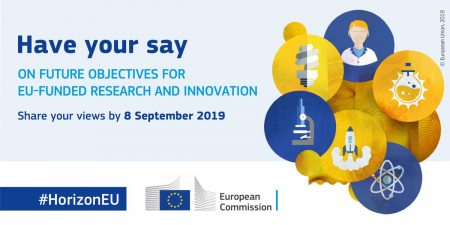This website uses cookies so that we can provide you with the best user experience possible. Cookie information is stored in your browser and performs functions such as recognising you when you return to our website and helping our team to understand which sections of the website you find most interesting and useful.
Once a project is approved, one of the essential aspects is communication and dissemination, in addition to measuring the socio-economic impact of these projects.
Project support activities: communication and dissemination
At Zabala Innovation, we manage the communication and dissemination activities of European projects: we define the communication strategy and objectives, identify the target audience and design the communication plan to transmit the key messages.
Zabala Innovation has a team of communication experts who prepare the project files, manage the task of disseminating the projects’ key messages (mission, vision, values, management plans, objectives) and identify the most relevant target audiences to be addressed.
Once the communication plan has been defined, at Zabala Innovation, we activate and coordinate the communication activities. We design the elements, select the appropriate media, and create the messages to be transmitted, through specific channels, based on the previously defined target audience.
Project support activities: social impact
To ensure a project’s success, clear and fluid communication is not enough; it is crucial to manage the social assessment and impact of the project.
European projects have always had a major impact on society, on the population of the Member States, but also globally. Depending on the sector or the type of programme, EU projects can impact different groups within society. Many projects are focused on education, entrepreneurship, and social inclusion, just to name a few.
The scope also varies: Horizon Europe, the new framework programme for the period 2021-2027, is funding projects with long-term social impact, generating structural and revolutionary changes in certain sectors, whereas Erasmus+ is more focused on current social problems.
Zabala Innovation helps define a social innovation strategy and measure its impact, the social improvements achieved by the projects, and the measures necessary to establish the new developments they imply in society. Simultaneously, we manage tools to favour the adoption of results and innovations by EU citizens.
“”












